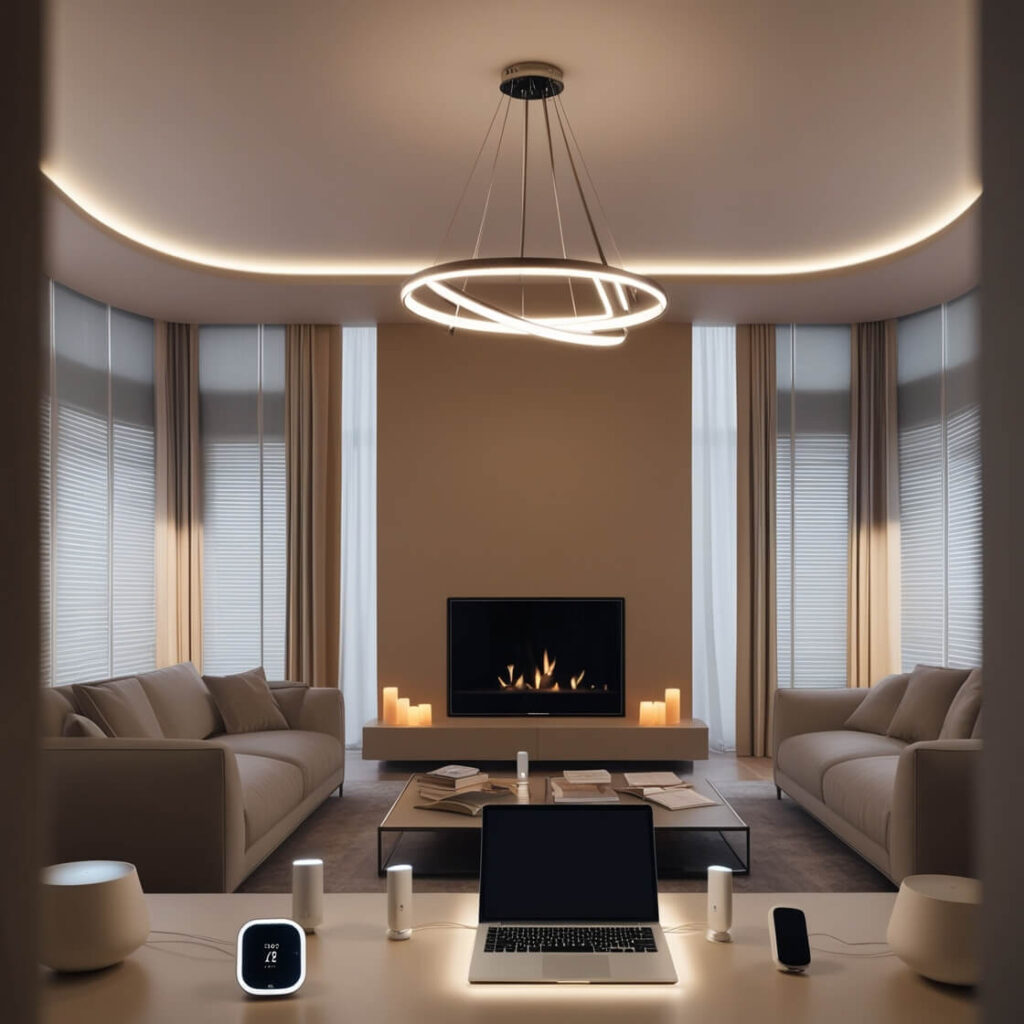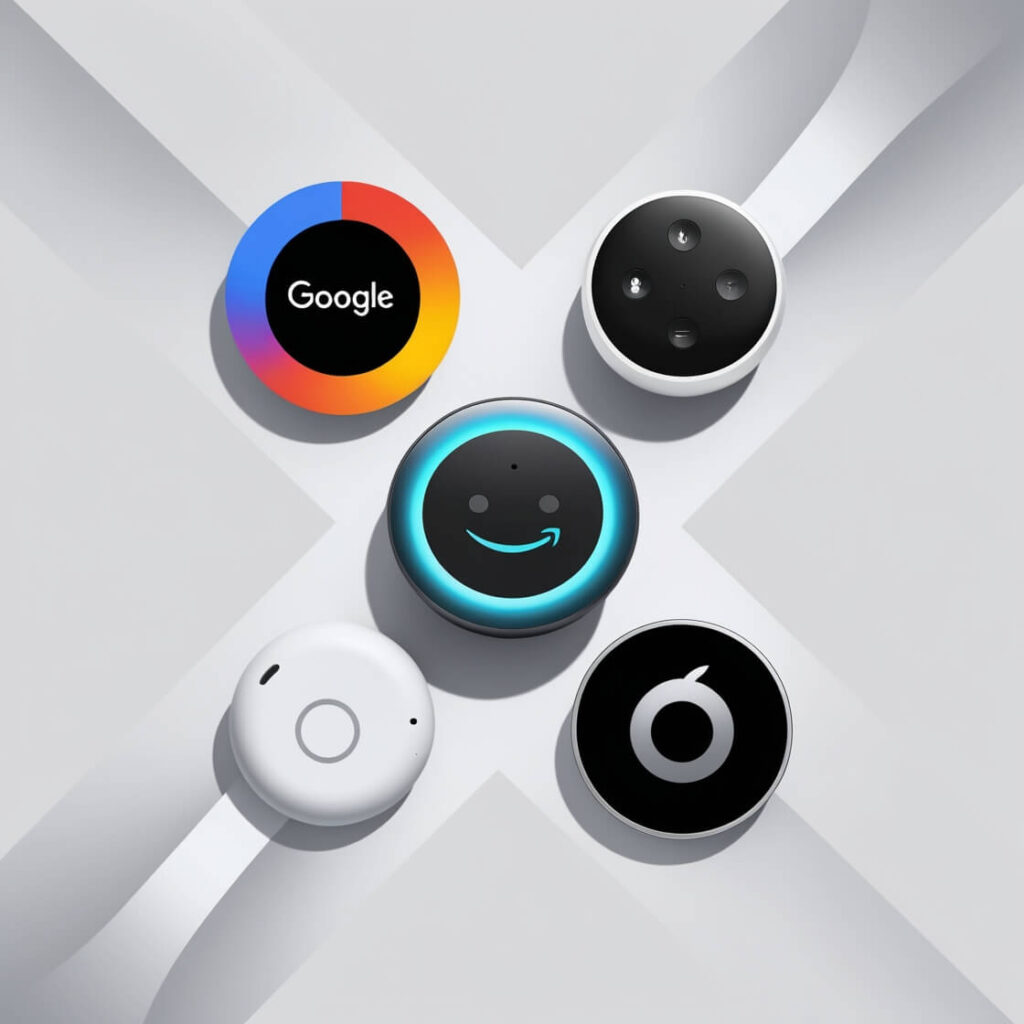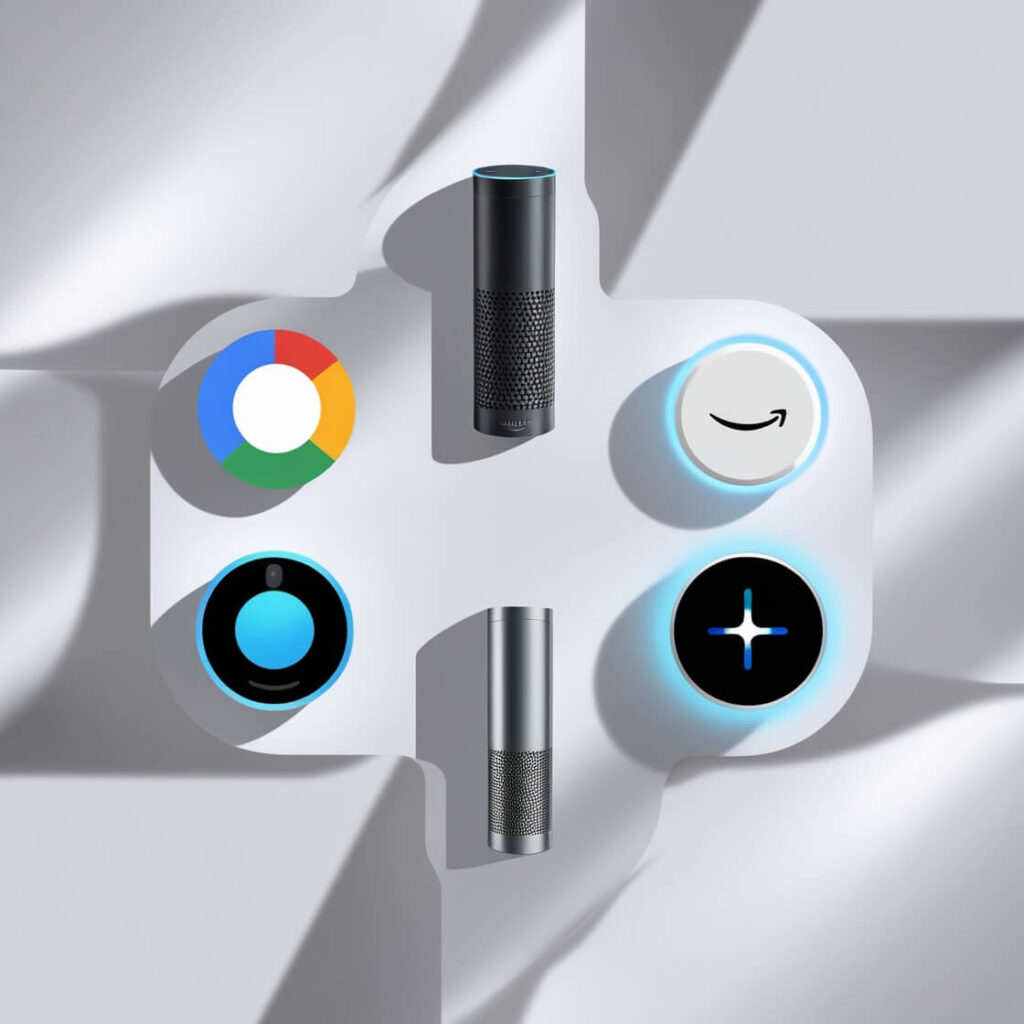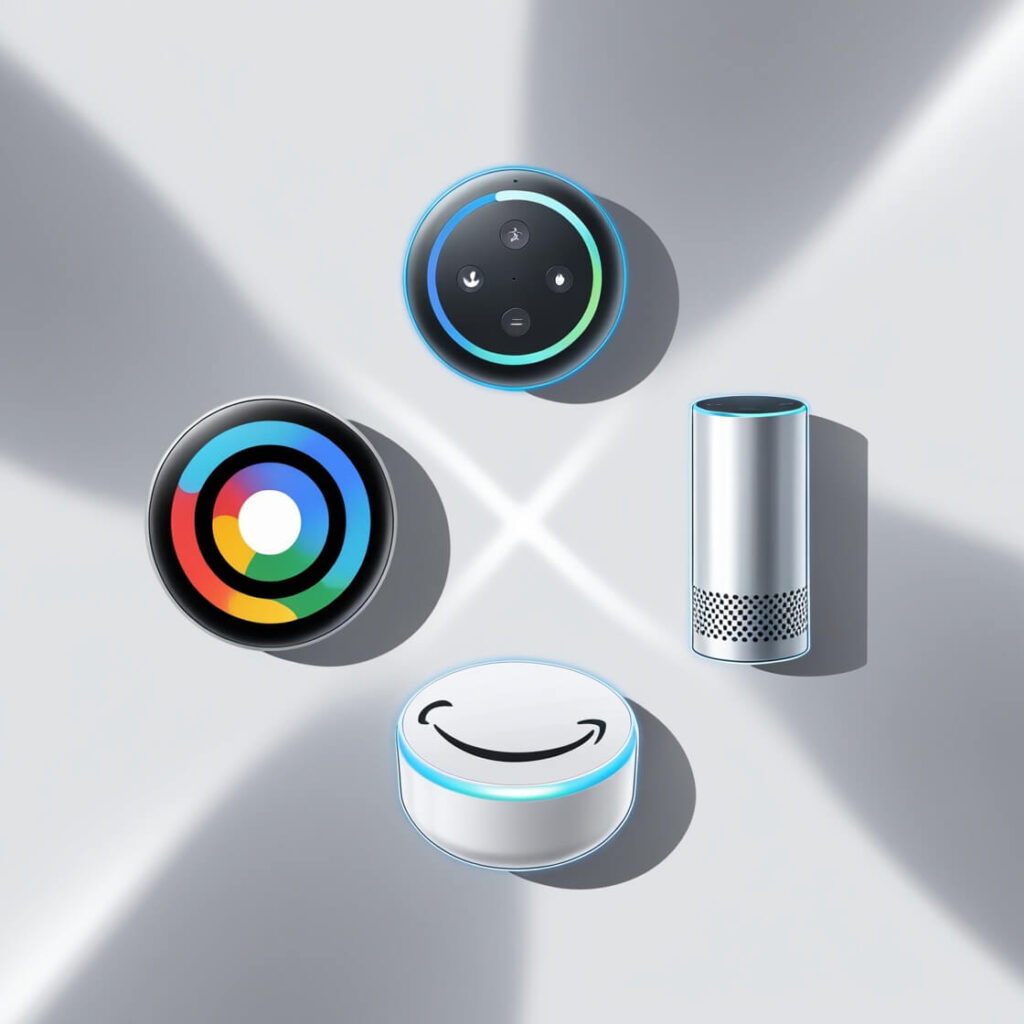Choosing the right smart home platform can feel overwhelming with so many options available. Should you go with Google Home, Amazon Alexa, or Apple HomeKit? Each platform offers unique features, and finding the best one for your specific household needs isn’t always straightforward.
The right platform for you depends on factors like your existing devices, how you want to control your home, what devices you plan to add in the future, and your preferences for privacy, integration, and usability. In this post, we’ll break down the strengths and weaknesses of each smart home platform so you can make an informed decision and set up the perfect smart home for your needs.

Why Picking the Right Smart Home Platform Matters
Your smart home platform acts as the brain of your home automation system. It controls how your devices communicate, how you interact with them, and how they integrate with each other. Whether you’re automating your lights, locks, cameras, or thermostat, you need a system that not only meets your current needs but also has the flexibility to grow with you.
Choosing the wrong platform could mean headaches down the road—compatibility issues, limitations in features, or even a lack of future support. That’s why it’s essential to find a platform that aligns with your lifestyle and smart home goals.
1. Google Home: The Power of Google Assistant

Google Home, powered by Google Assistant, is a leading contender in the smart home market. It offers robust integration with a wide range of devices, intuitive voice controls, and excellent AI-powered features.
Who Is It Best For?
Google Home is perfect for families who want seamless integration with Google’s ecosystem. If you already use Google services like Gmail, Google Calendar, or YouTube, this platform can centralize your life while offering intelligent automation.
Key Benefits of Google Home
- Superior AI and Voice Recognition: Google Assistant is known for its top-tier voice recognition capabilities. It excels at understanding natural language commands and can distinguish between voices in your household, offering personalized responses for each family member.
- Deep Integration with Google Services: If you rely on Google’s services, Google Home is an excellent choice. You can ask it to pull up your calendar, send messages, or stream YouTube on your TV—all with seamless integration.
- Extensive Third-Party Device Support: Google Home is compatible with a wide range of smart devices, from lights and locks to security cameras and speakers. Many manufacturers prioritize Google Home compatibility due to its large user base.
- Matter Support: Google Home is fully compatible with Matter, a universal standard for smart home devices, ensuring that your smart home remains flexible and future-proof.
Potential Downsides
- Privacy Concerns: Like all platforms, Google collects data to enhance its services. Some users might find this intrusive, especially when it comes to smart home usage data.
- Device Compatibility: While Google Home supports many devices, some niche brands or products might work better with Alexa or HomeKit. Be sure to double-check compatibility before buying new devices.
Ideal Setup for Google Home
If your home is equipped with Android devices, Chromecast, or Nest products, Google Home will provide the most cohesive experience. It’s particularly well-suited for those who want smart voice control, personalized features, and comprehensive integration with everyday digital tools.
2. Amazon Alexa: The King of Device Compatibility

Amazon Alexa is the most versatile and widely supported smart home platform. Known for its flexibility and massive third-party support, Alexa is compatible with an enormous range of smart devices, making it the go-to platform for many smart home enthusiasts.
Who Is It Best For?
If you want maximum compatibility with smart devices from a variety of manufacturers, Amazon Alexa is your best bet. It’s also ideal for those who already use Amazon services like Prime Video, Echo devices, and Kindle.
Key Benefits of Amazon Alexa
- Unmatched Device Compatibility: Alexa works with more smart home devices than any other platform, from lights and plugs to high-end home security systems. If you want flexibility in choosing smart devices from different brands, Alexa has you covered.
- Alexa Skills: Alexa boasts a vast library of Alexa Skills—small apps you can add to enhance your Alexa experience. Whether you want to check your fitness stats, play games, or get weather updates, there’s a skill for almost everything.
- Echo Devices: Amazon’s Echo lineup is one of the most affordable and popular smart speaker ranges. With options ranging from Echo Dot to Echo Show, you can add voice control and a display screen to any room in your home.
- Voice Shopping and Seamless Amazon Integration: If you’re a frequent Amazon shopper, Alexa allows you to reorder products, track packages, and manage your shopping list through voice commands. It’s an incredibly convenient feature for regular Amazon users.
Potential Downsides
- Voice Recognition Limitations: While Alexa performs well in most environments, it’s not as good at understanding natural language as Google Assistant. It sometimes requires more specific commands, which can be frustrating.
- Privacy Concerns: Alexa stores voice recordings by default, which can be reviewed and deleted through the app. For privacy-conscious individuals, this might be a downside compared to platforms like HomeKit, which emphasize security more.
Ideal Setup for Amazon Alexa
Amazon Alexa is ideal for large homes with a diverse array of smart devices from different manufacturers. Its voice-controlled shopping capabilities also make it a great fit for families who already rely on Amazon services. If you value compatibility and don’t mind a slight trade-off in AI sophistication, Alexa provides a powerful, customizable smart home platform.
3. Apple HomeKit: The Gold Standard for Privacy and Integration

Apple HomeKit is the platform of choice for Apple users who value privacy and integration across their Apple devices. While HomeKit has fewer compatible devices than Google Home or Alexa, it offers superior security and seamless integration with iOS products.
Who Is It Best For?
Apple HomeKit is best for Apple enthusiasts who want a streamlined, secure, and privacy-focused smart home experience. If you already own an iPhone, iPad, Apple TV, or HomePod, HomeKit offers unmatched integration.
Key Benefits of Apple HomeKit
- Strong Focus on Privacy: Apple prioritizes user privacy, and HomeKit is designed with security in mind. Unlike Alexa or Google Home, Apple doesn’t collect data on your smart home usage, making it the best option for privacy-conscious users.
- Seamless Integration with Apple Devices: HomeKit works seamlessly across all Apple products. You can control your smart home devices through Siri, use your Apple Watch as a control hub, and even manage everything from Apple TV or HomePod.
- HomeKit Secure Video: For security cameras, Apple offers HomeKit Secure Video, which allows you to store footage locally or in iCloud with end-to-end encryption. This feature ensures that even Apple cannot access your video recordings, providing an extra layer of security.
- Matter Compatibility: Like Google Home and Alexa, HomeKit supports the Matter standard, allowing you to integrate a wider range of devices in the future. This improves HomeKit’s compatibility with third-party devices, solving one of its major drawbacks.
Potential Downsides
- Limited Device Support: Apple HomeKit works with fewer smart devices than Google Home or Amazon Alexa. However, the number of compatible devices is increasing as more manufacturers adopt the Matter standard.
- Higher Costs: HomeKit-compatible devices are often more expensive than those for Google Home or Alexa, and Apple’s own hardware tends to carry a premium price.
If you’re deeply embedded in the Apple ecosystem, HomeKit offers the most seamless and secure experience. Families that value privacy, use multiple Apple devices, and want a reliable, encrypted smart home setup will benefit the most from HomeKit.
Related Post: How do I Control My Smart Home From One App
Breaking Down Your Smart Home Needs
So, which smart home platform is best for your needs? Here’s a simplified approach to help you decide based on your priorities:
- Compatibility and Flexibility
If your top priority is ensuring compatibility with as many smart home devices as possible, go with Amazon Alexa. Its broad support for third-party devices and services makes it the most versatile option.
- Advanced AI and Voice Control
If you want a smart home platform with superior AI capabilities, Google Home should be your choice. Its voice recognition and Google Assistant’s ability to offer personalized responses make it the best platform for families looking for natural voice control.
- Privacy and Apple Ecosystem
If privacy is your main concern and you’re already an Apple user, Apple HomeKit is the clear winner. Its focus on security and encryption, along with its tight integration with iOS devices, makes it ideal for Apple enthusiasts.
Conclusion: Choose What Works Best for Your Household
There is no one-size-fits-all answer when it comes to choosing the best smart home platform. Each household has different needs, devices, and priorities.
If you’re already immersed in the Apple ecosystem, HomeKit’s privacy and security are unparalleled. For maximum compatibility and the widest range of devices, Amazon Alexa reigns supreme. And if you want advanced AI capabilities and voice control, Google Home is the way to go.
By considering your specific needs, household devices, and long-term goals for automation, you can confidently select the smart home platform that will serve you best, not just today but in the future as well.




[…] Related Post: 3 most Popular Smart Home Platform […]
[…] Related Post: 3 Most Popular Smart Home Platform […]